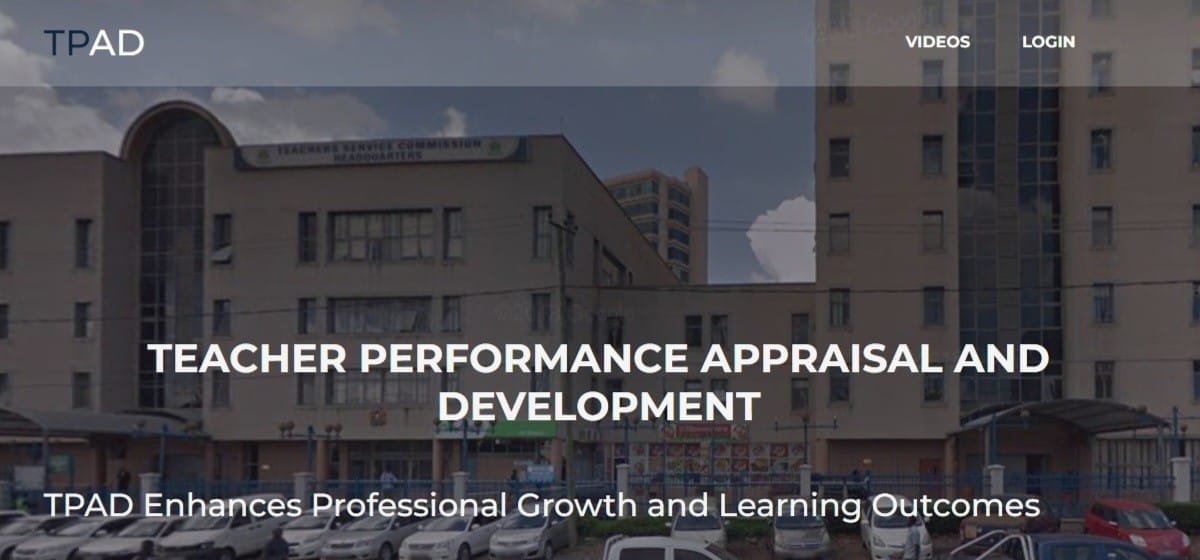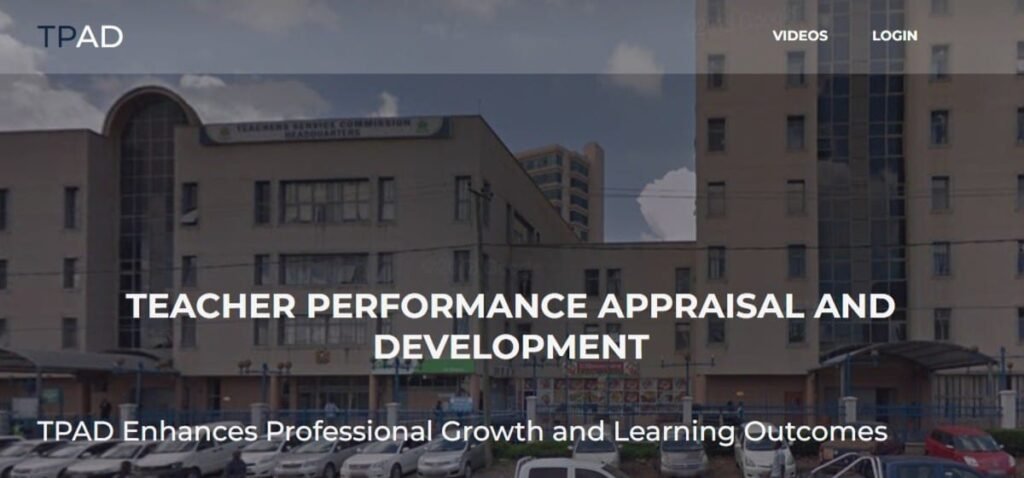Introduction of a New Career Progression Guideline (CPG) for Kenyan Teachers in 2025

A section of TPAD from TSC website

The career progression system for teachers in Kenya, as it stands in 2023, is structured to facilitate professional growth and enhance the quality of education delivered in schools. This system is integral to ensuring that qualified educators are recognized and rewarded for their commitment and performance in the classroom. The framework is designed around various stages of progression, which correspond to teachers’ qualifications, experience, and competencies. Teachers commence their career journey at the entry level, typically requiring a diploma in education or a degree in a related field. Progression through the ranks involves continuous professional development and meeting specific performance evaluation criteria.
Currently, the career progression pathway is outlined in several key stages: entry-level, certified teacher, senior teacher, and eventually, principal or school administrator roles. Each of these stages comes with defined markers for progression, including requirements for additional qualifications, such as a Master’s degree or higher, and performance assessments conducted by the Teachers Service Commission (TSC). Despite the structured nature of this system, many educators encounter significant challenges that hinder their advancement. These challenges range from a lack of transparency in promotion processes to limited access to professional development opportunities, which often leaves competent teachers stagnating in their current roles.
Moreover, the current structure does not adequately address issues related to workload, salary scalability, and recognition of experience gained in non-formal education settings. The need for an updated guideline becomes apparent as these barriers not only impede individual teachers’ career growth but also adversely affect overall educational outcomes. Thus, a revision of the existing career progression system is crucial to fostering a more equitable and efficient platform for teacher advancement, which ultimately contributes to the enhancement of the Kenyan education sector.
Key Features of the New Career Progression Guideline
The newly introduced Career Progression Guideline (CPG) for Kenyan teachers in 2025 presents various key features aimed at enhancing the professional development and career advancement of educators. Central to the CPG is the revision of qualification requirements, which have been restructured to ensure that teaching professionals possess the necessary skills and knowledge for effective teaching practices. The new requirements will place a significant emphasis on continuous professional development, thereby encouraging teachers to partake in regular training and certifications relevant to their teaching specializations.
Furthermore, the CPG outlines revised stages of career advancement that provide clearer pathways for teachers seeking to progress in their careers. Instead of the traditional linear progression, the new guidelines introduce a more dynamic framework that allows for lateral movement between different specializations and fields within education. This flexibility is designed to accommodate the varied skills and interests of teachers, resulting in a more engaged and versatile teaching workforce.
Another critical aspect of the CPG is the criteria established for performance assessment. These criteria will incorporate multiple dimensions of teacher performance, including student outcomes, classroom management, collaboration with colleagues, and contributions to the school community. By integrating a broader array of indicators for success, the CPG aspires to foster a more comprehensive understanding of effective teaching practices that align with global best practices in education.
In addition, the guidelines aim to adhere to international education standards, ensuring that Kenyan teachers are not only meeting national expectations but are also poised to compete on a global level. With these features, the new Career Progression Guideline endeavors to elevate the stature of teaching in Kenya, emphasizing the profession’s importance while promoting high-quality educational outcomes for students.
Expected Impact of the CPG on Teachers and the Education System
The introduction of the new Career Progression Guideline (CPG) for Kenyan teachers in 2025 is poised to bring transformative changes to the educational landscape in Kenya. One of the primary anticipated effects of this initiative is the enhancement of teacher morale and job satisfaction. By providing clear pathways for career advancement, the CPG acknowledges the dedication of teachers and incentivizes their professional growth. This recognition is essential in fostering a positive work environment, which can significantly reduce turnover rates, allowing schools to maintain experienced educators.
Additionally, the CPG is designed to improve teaching quality across the board. With the implementation of comprehensive professional development programs, teachers will have access to ongoing training opportunities that equip them with the latest pedagogical strategies and educational technologies. This continuous improvement in teaching skills is expected to translate into enriched classroom experiences. As teachers become more competent and confident in their abilities, the quality of instruction will rise, resulting in better student engagement and understanding.
Moreover, the anticipated changes outlined in the CPG are likely to lead to measurable improvements in student outcomes. A highly developed teaching workforce, supported by the CPG, fosters an educational environment where students can thrive. Research indicates that motivated and skilled educators contribute to higher levels of student achievement, which will be crucial in meeting Kenya’s educational goals.
In summary, the Career Progression Guideline stands to benefit not only teachers through professional recognition and growth but also the overall education system in Kenya. The focus on enhancing teacher quality and student outcomes will ultimately create a more robust and effective educational framework that serves the needs of both educators and learners alike.
Implementation Strategies and Stakeholder Involvement
Effective implementation of the new Career Progression Guideline (CPG) for Kenyan teachers in 2025 will require a coordinated effort involving multiple strategies and active participation from various stakeholders. The Ministry of Education will play a pivotal role by establishing a clear timeline for the rollout of the CPG, ensuring that all phases are methodically planned and executed. A phased approach will facilitate gradual adaptation among educators, allowing them time to understand the new requirements and expectations.
Resource allocation is another critical component of the implementation process. Adequate funding must be secured to provide training programs for educators that match the goals of the CPG. Educational institutions will be tasked with developing and facilitating these training initiatives, which will provide teachers with essential skills related to career progression, including mentorship, professional development, and evaluation techniques. Collaborating with teachers’ unions will also ensure that the voices and concerns of teachers are addressed throughout the training and implementation phases.
Stakeholder involvement is key to the success of the CPG. Teachers’ unions, educational institutions, and the Ministry of Education must work collaboratively to foster a supportive environment. Regular stakeholder meetings can facilitate the sharing of insights and concerns, allowing for timely adjustments to be made to the implementation strategy based on actual experiences in the classroom. This dynamic feedback loop will help ensure that the CPG remains relevant and effective in addressing the needs of educators while adapting to any unforeseen challenges.
Incorporating a culture of ongoing evaluation will prove beneficial as well. By continuously gathering feedback from teachers on the implementation process, the involved stakeholders can make necessary refinements and enhancements to the guideline, ultimately leading to improved teacher satisfaction and student outcomes. The synergy among stakeholders is vital to effectively implement the CPG and achieve the desired educational reforms in Kenya.






